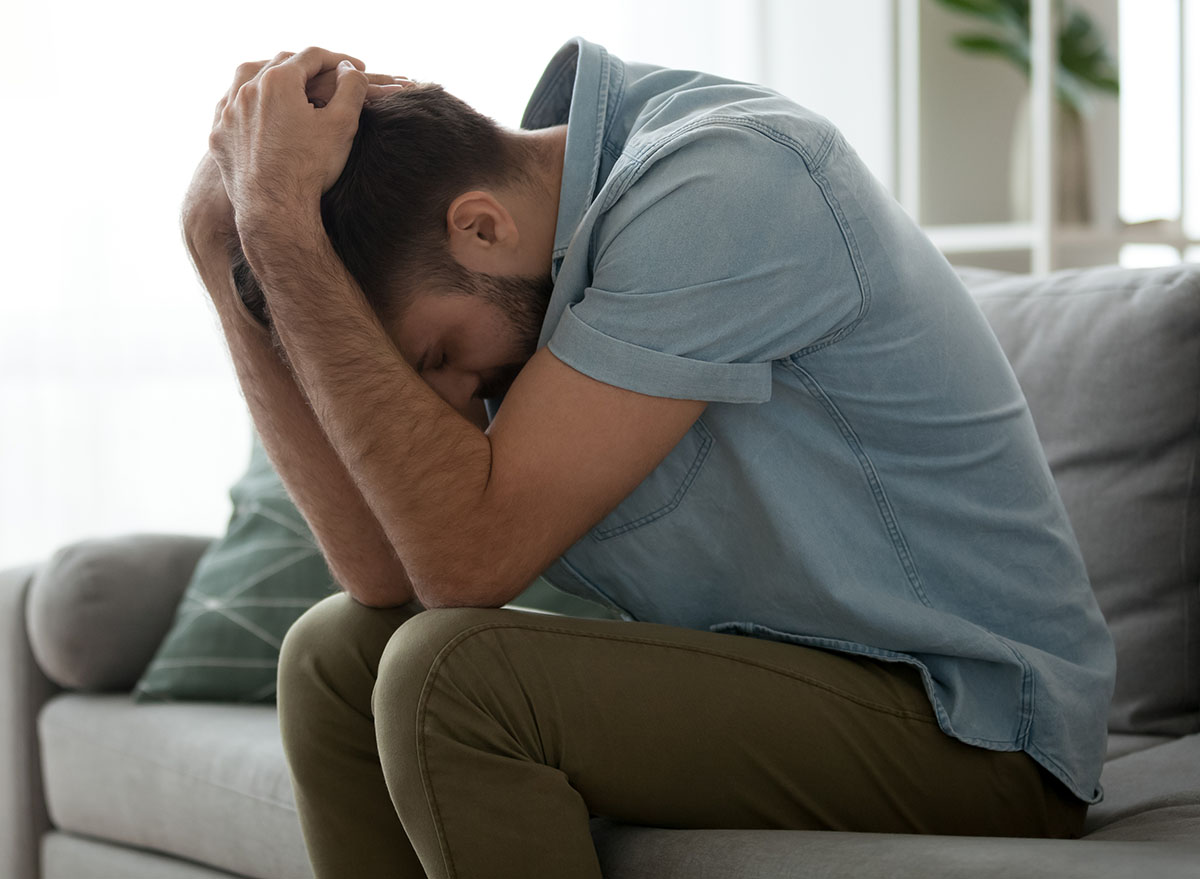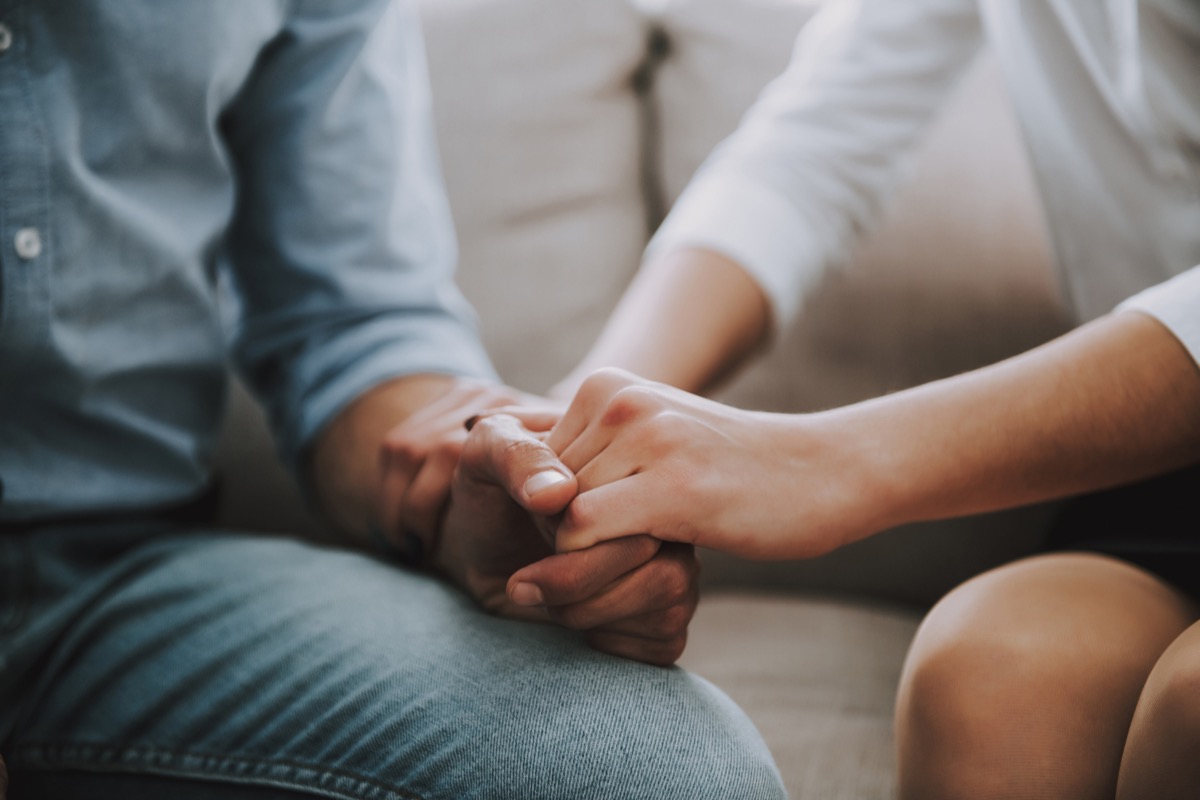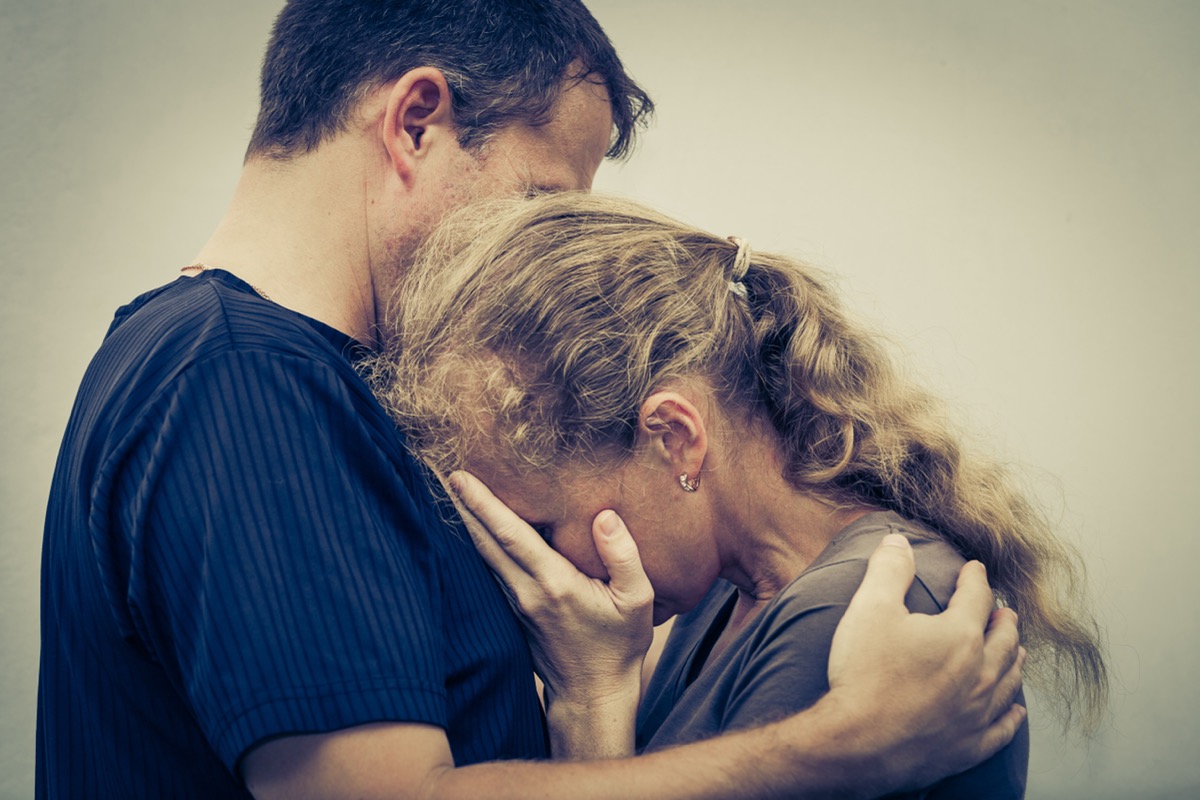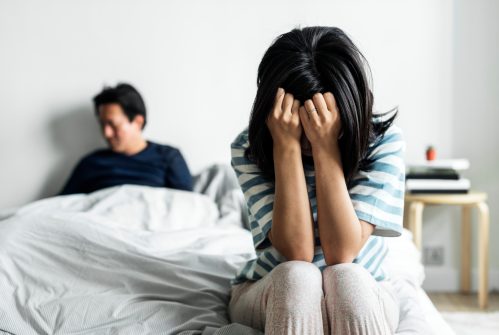There Are Four Types of Guilt—And They Can All Affect Your Relationship, New Study Says
But two types of interpersonal guilt are the most detrimental, according to the findings.
Guilt is one of the ickiest emotions imaginable. It can make us feel bad about our standing in life and often pushes us to do things we usually wouldn't (for example, how many times have you been guilted into hosting a holiday dinner when you'd rather head to a restaurant). Unsurprisingly, guilt can impact our romantic relationships, too. A recent study from the University of Rome found there are four types of interpersonal guilt—and each affects our behaviors differently. Read on to learn the implications for you and your love life.
READ THIS NEXT: 8 "Small But Toxic" Things to Stop Saying to Your Partner, According to Therapists.
These are the four types of guilt.

Researchers at the University of Rome wanted to find a link between the types of interpersonal guilt and their relationship to attachment and altruism. They surveyed 393 adults (who averaged 34 years old and identified as women in 70 percent of cases) about their feelings of guilt and categorized those feelings into four buckets. According to Susan Krauss Whitbourne, PhD, professor emerita of psychological and brain sciences at the University of Massachusetts Amherst, in Psychology Today, those buckets are:
- Survivor Guilt: I feel uncomfortable feeling better off than other people.
- Separation Guilt: I think I should not separate from loved ones because this would be hurtful, disloyal, or make them feel abandoned.
- Omnipotent Responsibility Guilt: I feel it is my responsibility to fix other people's problems.
- Self-hate: I do not deserve to be happy.
Different types of guilt lead to different behaviors.

The study found that omnipotent responsibility guilt was the only form of guilt correlated with altruism; this guilt type was also associated with anxious attachment.
Those with self-hate guilt showed the highest instances of personality pathology.
READ THIS NEXT: 5 Relationship Red Flags Everyone Misses, Experts Warn.
So, what if you have omnipotent responsibility guilt?

These findings have real implications for romantic relationships. David Tzall, PsyD, a licensed psychologist based in Brooklyn, notes that omnipotent responsibility guilt can create tension in a few ways.
"It can put a lot of pressure on the person experiencing the guilt to constantly be doing more and more for their loved one, which can be exhausting and lead to burnout," he says. This can cause the person to avoid setting boundaries with their partner, leading to resentment.
"It's important for both partners in a relationship to be able to take care of their own needs and to have a healthy balance of give and take," Tzall adds. "Omnipotent responsibility guilt can disrupt this balance and lead to problems in the relationship."
For more relationship advice delivered straight to your inbox, sign up for our daily newsletter.
Or self-hate guilt?

Self-hate guilt can also impact relationships. Tzall explains those who experience this form of guilt may have trouble believing they are worthy of love.
"They may have low self-esteem and struggle with feelings of inadequacy," says Tzall. "They may also be self-critical and display difficulty accepting compliments or positive feedback from their partner." Over time, these behaviors can strain the relationship.
Fortunately, there are ways to improve. "It's important for someone with self-hate to work on improving their self-esteem and self-worth in order to have a healthy and fulfilling relationship," Tzall says. "This may involve seeking therapy or other forms of support." By processing unaddressed trauma, a person can enter a mature relationship that doesn't have a caregiving aspect.
"It can be helpful to remind yourself of your positive qualities and to focus on the things you have accomplished and the progress you have made," Tzall says.
Survivor guilt and separation guilt are problematic, too.

Survivor guilt is often identified with those suffering from PTSD, say a military member who was the only one of their group to survive an attack. But according to Verywell Mind, it can also apply to those who have lived through car accidents, natural disasters, or medical traumas. And as Psychology Today explains, this type of guilt can lead to irritability, feelings of helplessness and disconnectedness, and a lack of motivation—all of which can play out in relationships.
Separation guilt may prevent someone from exiting an unhappy or unhealthy relationship due to fear over how the other person will cope.
Psychology Today notes that, according to the study authors, all four types of guilt are rooted in "early childhood experiences with caregivers." Those who saw a parent or parental figure do everything for their partner are more likely to emulate the behavior and "assume that they are responsible for any of their actions that reflect negatively on someone they care about."






















